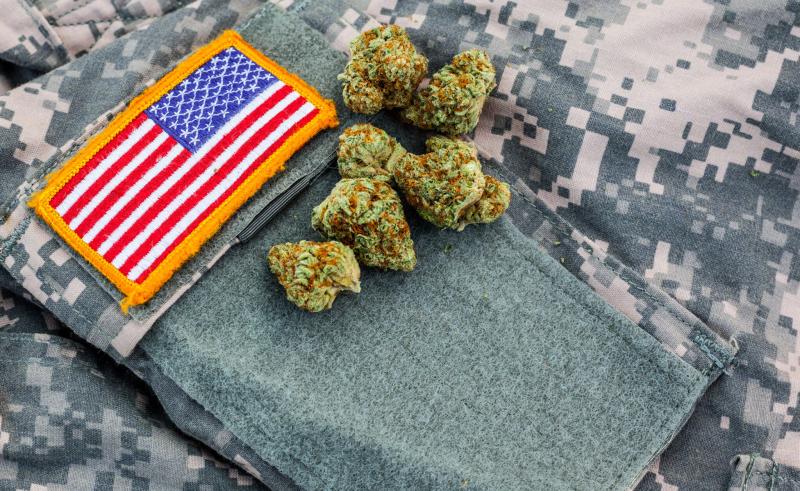
How Veterans' cannabis use can impact their care
By ETHAN SIMMONS
Twenty-one states have legalized recreational cannabis, and 88 percent of American adults are in favor of legalizing the use of marijuana for medical and recreational use, according to a recent Pew Research Center survey. Military Veterans aren’t an exception from this rising tide.
While the percentage of Veterans reporting past-year marijuana use has increased in the last decade, few of them obtain it from medical sources, a new study shows.
An analysis from Department of Kinesiology and Community Health Assistant Professor Rachel Hoopsick and co-author R. Andrew Yockey, assistant professor at the University of North Texas Health Science Center at Fort Worth School of Public Health, dove into national trends in marijuana use among U.S. Veterans from 2013 to 2019.
The researchers pulled data from the National Survey on Drug Use and Health, which surveyed 16,350 veterans ages 18 and older on their experience with various substances.
Hoopsick’s and Yockey’s analysis revealed a sharp increase in marijuana use among Veterans in recent years. More than one in eight Veterans surveyed (12.9 percent) reported past-year marijuana use in 2019, up from 8.24 percent in 2013.
“Where it gets interesting is we did not see a similar increase in self-reported medical marijuana use among vets,” said Hoopsick, whose research focuses on substance use and mental health for people in high-stress occupations. “This is telling us that although marijuana use is increasing in Vets, it's not medical marijuana, it's recreational marijuana.”
In the U.S., 38 states have authorized the sale of medical marijuana, and 21 of them regulate cannabis for recreational use as well. But the drug remains federally illegal, classified as Schedule I by the Drug Enforcement Administration “with no currently accepted medical use and a high potential for abuse.”
Therefore, Veterans Health Administration providers cannot prescribe or recommend patients marijuana, though they may discuss the drug in a general sense.
Many Veterans clearly use marijuana, often seeking it out for therapeutic purposes, Hoopsick said. Veterans show higher instances of physical and mental health conditions than the general population.
This disconnect presents two issues, Hoopsick said: VA health care providers might be missing a critical piece of health information during consultations with Veteran patients. And with less frequent medical prescriptions, some Veterans could be obtaining cannabis from unregulated sources with added safety risks.
“Veterans should discuss with their care providers how the addition of cannabinoids or any other medication to their routine may interact with or impact other medications or treatments they are receiving,” an official from the Veterans Health Administration wrote in an email.
Veterans will not be denied their VA benefits for using marijuana.
“I think that that is a fear among some Veterans that if they divulge that information that they'll lose their benefits, but that's not the case at all,” Hoopsick said.
“It's important for their health care providers to have a full understanding of all the substances that they might be using and how that might affect their health and treatment plan.”
